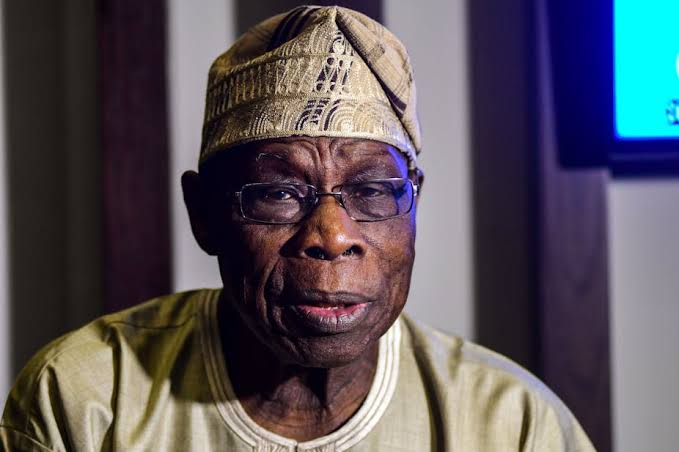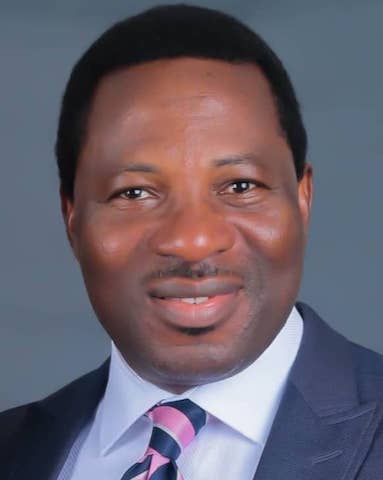Swing-State Politics Is Rotting Our Brains and Harming Democracy

Politics tamfitronics
Enough about fracking Pennsylvania!

The Electoral College is far and away the single most ridiculous institution in the democratic world. It was a last-minute compromise produced by exhausted delegates at the Constitutional Convention, and though political forces that benefit from it continue to retroactively justify it, it has nevertheless been deeply unpopular for decades. Twice this century, the Electoral College has awarded control of the presidency to the candidate who received fewer votes than his opponent, with predictably disastrous policy consequences that we will still be feeling decades from now.
And the Electoral College is the reason that the entire 2024 election is going to come down to roughly seven states in a country with 50 of them, plus Washington, D.C. Collectively these states hold less than 20 percent of the American population, yet for the past 18 months they have gotten to dominate the national conversation in ways the rest of us could only dream about. There are more Republicans in the Democratic stronghold of California than there are in Michigan, Georgia, and Nevada put together, but no one cares what they say or think because they have had the misfortune of being more or less permanently outnumbered by Democrats in statewide elections for a generation.
Political science research has found that presidents direct more resources and attention to states whose approval they will need in the next election. In a 2015 study of federal spending from 1984 to 2008, political scientists Douglas Kriner and Andrew Reeves found that “in election years, swing state counties that are supportive of the president see billions of dollars more in federal spending just by virtue of the state in which they are located.” That means not even everyone in the swing state benefits—just the counties that are most supportive of the president’s political party. In addition to federal grants, these dynamics appear to apply to the awarding of federal contracts, which were awarded in much higher numbers to firms located in landslide states and swing states, according to this 2023 analysis by a group of Hong Kong–based researchers.
That goes for catastrophes, too, something that should be on everyone’s mind this week as Hurricane Milton batters the west coast of Florida. Kriner and Reeves, in a related article, analyzed disaster declarations during the same time period and found that counties in states that support the president’s party as well as swing-state counties “were more likely to receive disaster declarations than counties in other states,” a conclusion shared by other researchers.
This should be no surprise after what we endured during the Trump era. Just this week, two former high-level Trump advisers revealed that in 2018, Trump ordered staffers to look up how many votes he received in areas of California impacted by wildfires before approving disaster aid. This is Electoral College brain-poisoning in action. Perhaps more infamously, he jawed with the mayor of San Juan instead of directing the government to address the grave crisis inflicted on Puerto Rico by Hurricane Maria in 2017, a storm that ultimately killed thousands of American citizens on the island. He later called for a halt to federal relief spending there.
And while it appears the Biden administration is treating the impact of this season’s hurricanes as it should, the media’s focus on the almost unfathomable catastrophe in the western mountains of swing state North Carolina is a stark contrast to the near-total absence of attention to what’s going on just over the state line in deep-red Tennessee—complete with the obligatory analyses of how the hurricane’s aftermath might impact the outcome in the Tar Heel State. As for the electoral impact of Helene in Tennessee, no one is asking and no one cares. That kind of coverage disparity is an almost inevitable consequence of swing-state mania, and we shouldn’t be surprised when it seeps into policy decisions.
As with nearly everything else about our politics, this bizarre distortion of our political life by the Electoral College has gotten dramatically worse over the course of this century, as Americans have been sorted into “red” and “blue” states by virtue of the decisions made by broadcasters on the evening of the 2000 election. That was the night the networks chose red for states that Republican George W. Bush won and blue for states that Democrat Al Gore won, an arbitrary data visualization scheme that now serves as an inescapable template for our politics and identities.
It hasn’t always been like this. Throughout much of the 20th century, voters were much more willing to switch votes from one presidential election to the next. In 1968, for example, a staggering 30 states switched from Democratic in 1964 to Republican. In 1976, 22 states flipped Democratic after Republican Richard Nixon’s nationwide landslide in 1972. In the second half of the 20th century, it was routine for more than 20 percent of the electorate to switch their votes between presidential cycles, according to the Center For Politics. In 2020, just five states flipped from 2016, with fewer than 6 percent of the voters nationally changing their party support between elections. In 2016, it was six states.
Since 1992, 18 states plus D.C., now totaling 193 electoral votes, have voted for the Democratic candidate in every single presidential election. For Republicans, it is 12 states that equal 103 electoral votes. In other words, more than half of the electoral votes available have gone to the same party for eight consecutive presidential cycles.
This dramatic shrinking of the battleground map has allowed campaigns to focus ever greater firepower on a tiny handful of states, which get flooded with the overwhelming majority of all ads, staff, and campaign visits. The national parties have, in effect, abandoned the rest, at least in terms of presidential politics.
Another way of looking at it is this: In the 2000 election, 13 states were decided by fewer than five points, making all of them plausible targets for both candidates in 2004. In 2020, it was just eight, and the GOP’s midterm landslide in Florida has all but removed it from lists of purple states. Tuesday’s New York Times/Siena College poll showing Trump with a 13-point lead in the state is probably the end of Democrats’ dreams of a resurgence there—so we’re down to just seven battleground states.
One of the many hollow arguments that proponents of the Electoral College use to justify this absurd situation is that the swing states change over time and basically everyone gets their shot eventually. Yet 5 of the 10 closest states by margin in 2012 are on the list of 2024 battleground states. In fact, with the exception of Florida, the 2024 battleground map is virtually the same as it was in 2020. That means that the four largest states by population in the country—California, Texas, Florida, and New York, with around 109 million people between them—are effectively uncontested this year. If Texas keeps trending blue, that could change soon, but right now the Electoral College is locking more people than ever out of having any meaningful input into what happens this year.
It’s just completely exhausting! If I have to hear about one more focus group with undecided voters in Pennsylvania or read another campaign journalist’s tired Pennsylvania diner story, I am going to hurl myself into Lake Michigan. If I hear the presidential candidates use their precious time in national debates to pledge their undying fealty to a policy—hydraulic fracking—that is important to a fraction of the voters of one swing state, I am going to try to talk several hundred thousand of my closest associates in Illinois into voting Republican for one cycle so that we get some consideration the next time around. And to my friends in the battlegrounds who are sick and tired of the nonstop politicking and attention, all I can say is: We’re as sick of you as you are of us.
- Electoral College
- North Carolina
- Pennsylvania
- 2024 Campaign



 Hot Deals
Hot Deals Shopfinish
Shopfinish Shop
Shop Appliances
Appliances Babies & Kids
Babies & Kids Best Selling
Best Selling Books
Books Consumer Electronics
Consumer Electronics Furniture
Furniture Home & Kitchen
Home & Kitchen Jewelry
Jewelry Luxury & Beauty
Luxury & Beauty Shoes
Shoes Training & Certifications
Training & Certifications Wears & Clothings
Wears & Clothings















